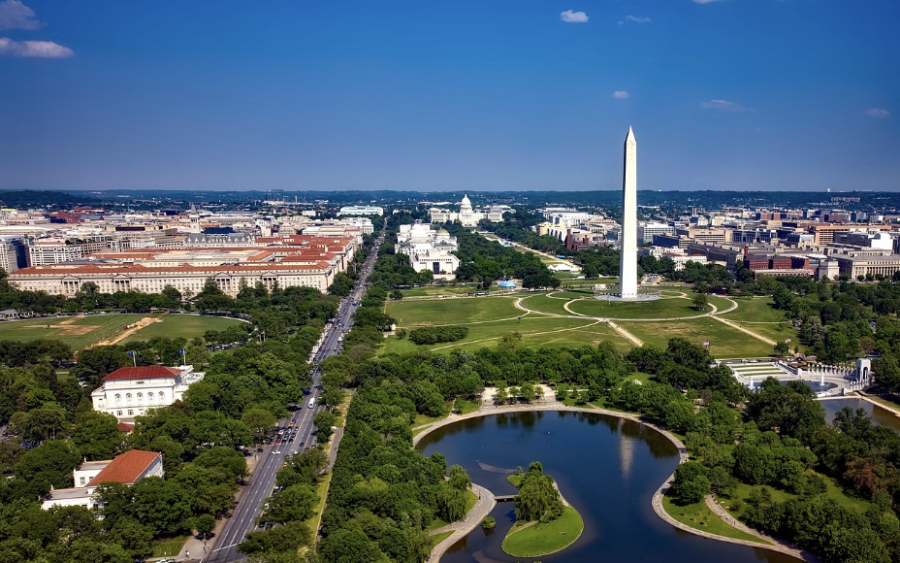A second Washington state is no good for U.S.
Renewed pushes for D.C. statehood would be a political coup for Democrats, but would require significant national legislation. (Courtesy / Pixabay)
April 3, 2023
On March 20, 2023, President Joe Biden signed HJ Res 26 into law, which officially expressed congressional disapproval of the Revised Criminal Code Act of 2022. While Congress expressed disapproval over various and sundry events, this resolution is significant in that it is not only a statement, but it has the legal power to revoke the criminal code. While this is certainly a victory for bipartisanship and the first glimpse of the pressure Democrats will face on issues related to crime, the underlying problem here is whether or not the District of Columbia should be admitted to the union as the 51st state. I swiftly and firmly answer in the negative.
Under Article I, Section 8 of the United States Constitution, Congress is given the authority “to exercise exclusive legislation in all cases whatsoever, over such district (not exceeding ten miles square) as may, by cession of particular states, and the acceptance of Congress, become the seat of the government of the United States…” This article is a simple reason for why D.C. statehood is not only undesirable, but illegal. The Congress has, however, given D.C. some independence. In 1973,Congress passed the District of Columbia Self-Government and Governmental Reorganization Act. The law specifically allowed the federal district to have its own city council and elect a mayor. The act laid out several provisions which restricted the actions of the D.C. council, such as banning them from imposing a tax on commuters who work in the district, making any changes to the Heights of Buildings Act of 1910, enacting a budget that is not balanced, among other things. Above all, Congress still retains the authority to review and block any D.C. legislation or referendums which it dislikes. The act was never meant to give D.C. autonomy as a state, but simply allow it to operate as a city with limited independence.
The most common argument presented in favor of D.C. statehood is the problem of representation. Those who favor statehood have claimed that D.C. has no representation in the making of federal laws. Under the twenty third amendment, D.C. has the right to choose electors for a presidential election and has done so ever since 1964. The city also has shadow representation in Congress, who cannot vote on every law, but are allowed to vote on certain bills and sit on committees and may even lead their party on a committee. If the residents of D.C. want more representation, then the city should be given back to Maryland from whence it was created. Another argument against D.C. statehood is that the federal government often interferes in local affairs. This, however, is not the case. The Congress has only used its authority to block laws on less than ten occasions since the passage of the District of Columbia Self-Government and Governmental Reorganization Act in 1973. Even in the situations where Congress has intervened, they have not done so in an arbitrary manner, but to strike down laws that oppose the national law or put the safety of the public at risk, as in this most recent circumstance.
In order to admit Washington D.C. as the 51st state, the Congress would have to amend the Constitution to repeal the federal control in Article I, Section 8, lest they act in contravention of the Constitution. The most pressing concern about the admittance of Washington D.C. as a state is the partisan nature of the district. America has never allowed one party or group to admit a state for their own purpose without sufficing the party disenfranchised by the addition. The Compromise of 1820 allowed Missouri to enter the union as a slave state, but required the admittance of Maine as a free state. The Compromise of 1850 allowed California to join the union as a free state, but a new fugitive slave law was enacted to appease the South. Even the most recent additions to the Union of Alaska and Hawaii in 1959 were done with the intent that Alaska would be a Democratic state and Hawaii a Republican state, although the opposite turned out to be true. The blatant push by national Democrats to admit Washington D.C. as the 51st state wreaks of partisanship and simply bolsters their ambitions by adding liberal members to the U.S. Congress. History has shown that states cannot be used as political cushions to blindly bolster one party’s goals and D.C. should be no exception to that. The Congress must not only work to repeal egregious laws passed by the city council, but must also oppose and block any attempts to add D.C. to the ranks of American statehood.



